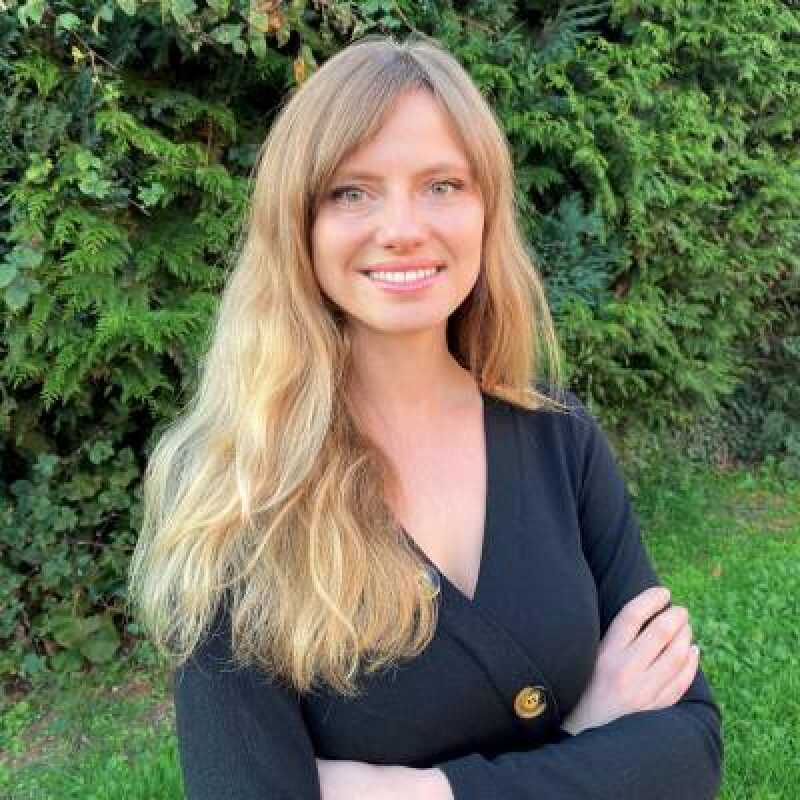- University of Kent
- School of Psychology
- People
- Professor Aleksandra Cichocka
Professor Aleksandra Cichocka


Professor Aleksandra Cichocka received her PhD in Psychology from the University of Warsaw in 2013. During her doctoral studies she was a Fulbright Fellow at New York University. After completing her PhD, she joined Kent, where she leads the Political Psychology Lab.
Key publications
Aleksandra is a political psychologist whose research leverages the psychology of the self and the psychology of social groups to understand contemporary politics. Her work investigates topics such as ideology, intergroup relations, political engagement, conspiracy beliefs, environmental attitudes, and support for democratic practices. She is especially interested in understanding how frustration of psychological needs—and associated defensiveness—affect political attitudes and behaviours.
Taking an interdisciplinary approach, Aleksandra bridges social and personality psychology with political science, law, sociology, and linguistics. She works with various methodologies, from controlled experiments and fieldwork to large-scale cross-national surveys. In her current research, she also employs computational methods like natural language processing to understand political behaviors such as voting, social media activity, collective action, and policy compliance.
Aleksandra has extensive experience developing provision and teaching both at undergraduate and graduate level. She typically teaches in the areas of social, personality, or political psychology as well as methods and statistics. She currently leads seminars in social and political psychology.
Current PhD students:
Editorial work
| 2021 - 2024 | Reviewing Editor, PNAS Nexus |
| 2021 - 2024 | Associate Editor, Social Psychological Bulletin |
| 2017 - 2020 | Associate Editor, European Journal of Social Psychology |
| 2019 | Special Section Editor (Debate on the 25 Years of System Justification Theory), British Journal of Social Psychology |
| 2014 - present | Editorial Board Member: British Journal of Social Psychology, Journal of Experimental Social Psychology, Journal of Personality and Social Psychology, PNAS Nexus, Political Psychology |
| 2014 - 2017 | Editorial Board Member: Journal of Social and Political Psychology, Psychology of Women Quarterly |
| 2024-2029 | Narcissism in the world of politics: Investigation into the role of four narcissistic facets in predicting pro- versus anti-democratic attitudes and choices (Co-I; PI: Marta Marchlewska, Polish Academy of Science) | £452,300 |
| 2023 | Jim Sidanius Early Career Award, International Society of Political Psychology | |
| 2022-2024 | Nuffield Foundation, "Administrative fairness in the digital welfare state", (Co-I; PI: Professor Joe Tomlinson, University of York) | £395,140 |
| 2021-2024 | Leverhulme Trust "Does Identity Rhetoric Boost Online Political Messages" (PI, with Jay Van Bavel, Michal Kosinski, and Aleksandra Cislak) | £305,795 |
| 2019-2022 | Polish National Science Centre “Can strong identification harm the ingroup? Secure and defensive forms of ingroup identification in intragroup relations and group goals attainment” (Co-I; with Aleksandra Cislak, PI) | £270,000 |
| 2018 | Faculty of Social Sciences Research Fund “Why aren’t Leavers and Remainers changing their minds?” (PI, with Matt Goodwin) | £4,850.98 |
| 2017 | Jos Jaspars Medal for Early Career research contribution; European Association of Social Psychology | - |
| 2016 | Andrzej Malewski Award for outstanding contribution to psychological theory and research; Polish Academy of Sciences | - |
| 2016 | Centre For Research and Evidence on Security Threats “Why do people adopt conspiracy theories, how are they communicated, and what are their risks? Perspectives from psychology, information engineering, political science, and sociology” (Co-I, with Karen Douglas, PI, and Robbie Sutton) | £62,404 |
| 2015-2018 | Polish National Science Centre “In charge or in control? Short- and long-term effects of personal control and control over others” (Co-I; with Aleksandra Cislak, PI) | £60,373 |
| 2015-2018 | Polish National Science Centre “Control deprivation, (inter)group relations, and political cognition” (Co-I; with Mirek Kofta, PI) | £220, 928 |
| 2015-2018 | Polish National Science Centre “Dynamics and the origins of collective aggression in multidimensional approach - an integrative attempt” (Co-I, with Mikołaj Winiewski, PI) | £75,092 |
| 2013 | Robert Zajonc Award for impactful international publication record of an early career researcher; Polish Society of Social Psychology | - |
| 2011-2014 | PI, Polish National Science Center General Grant , "Effects of individual and collective control on in-group identification" | £53,787 |
| 2012 | PI, University of Warsaw Young Scientists Research Fund , "Self-esteem and ideology," | £1,593 |
| 2009 | PI, University of Warsaw, Faculty of Psychology research fund, “Collective narcissism as fragile collective self-esteem,” | £464 |
Loading publications...
Showing of total publications in the Kent Academic Repository. View all publications